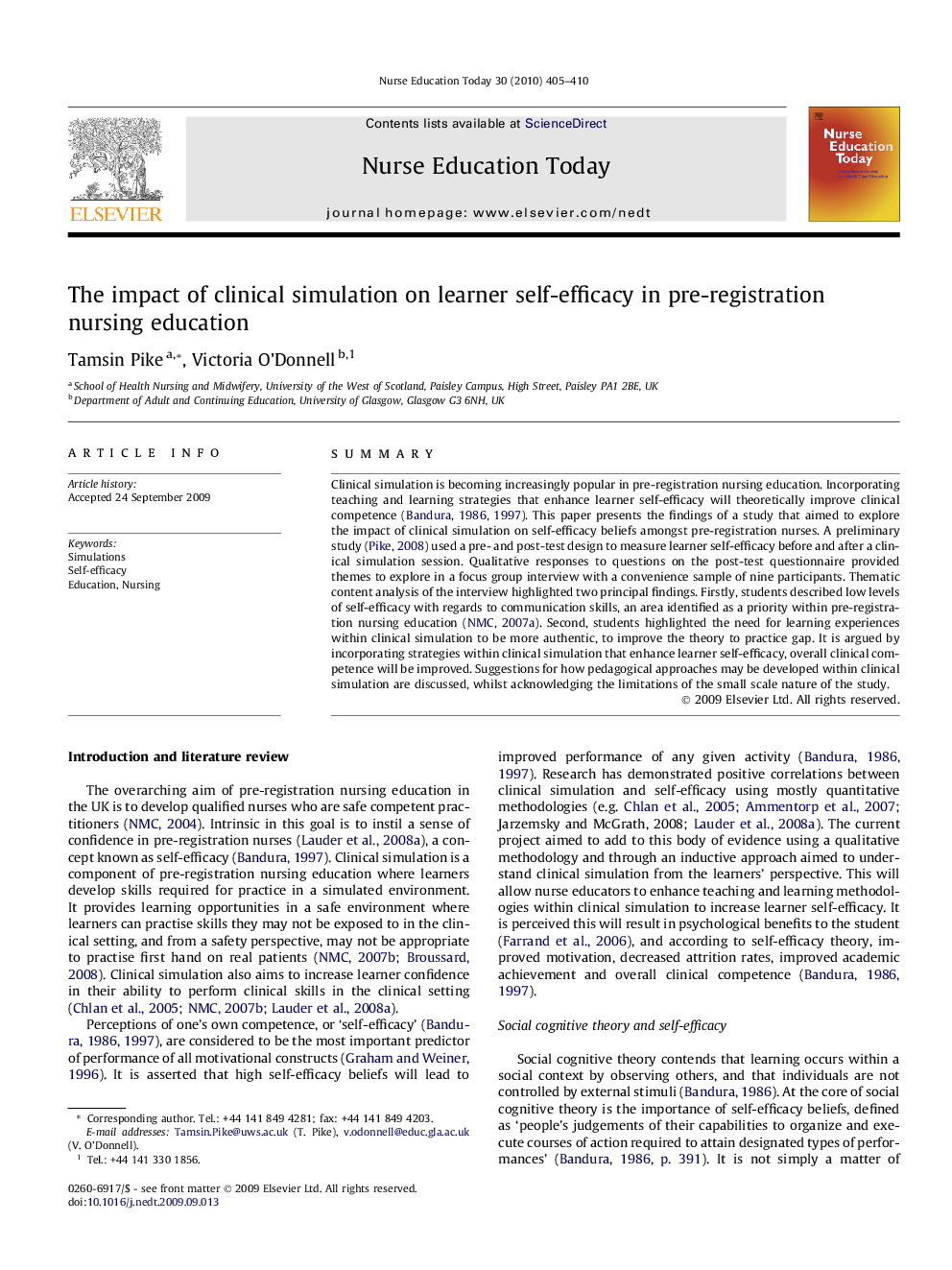| Article ID | Journal | Published Year | Pages | File Type |
|---|---|---|---|---|
| 368916 | Nurse Education Today | 2010 | 6 Pages |
SummaryClinical simulation is becoming increasingly popular in pre-registration nursing education. Incorporating teaching and learning strategies that enhance learner self-efficacy will theoretically improve clinical competence (Bandura, 1986 and Bandura, 1997). This paper presents the findings of a study that aimed to explore the impact of clinical simulation on self-efficacy beliefs amongst pre-registration nurses. A preliminary study (Pike, 2008) used a pre- and post-test design to measure learner self-efficacy before and after a clinical simulation session. Qualitative responses to questions on the post-test questionnaire provided themes to explore in a focus group interview with a convenience sample of nine participants. Thematic content analysis of the interview highlighted two principal findings. Firstly, students described low levels of self-efficacy with regards to communication skills, an area identified as a priority within pre-registration nursing education (NMC, 2007a). Second, students highlighted the need for learning experiences within clinical simulation to be more authentic, to improve the theory to practice gap. It is argued by incorporating strategies within clinical simulation that enhance learner self-efficacy, overall clinical competence will be improved. Suggestions for how pedagogical approaches may be developed within clinical simulation are discussed, whilst acknowledging the limitations of the small scale nature of the study.
